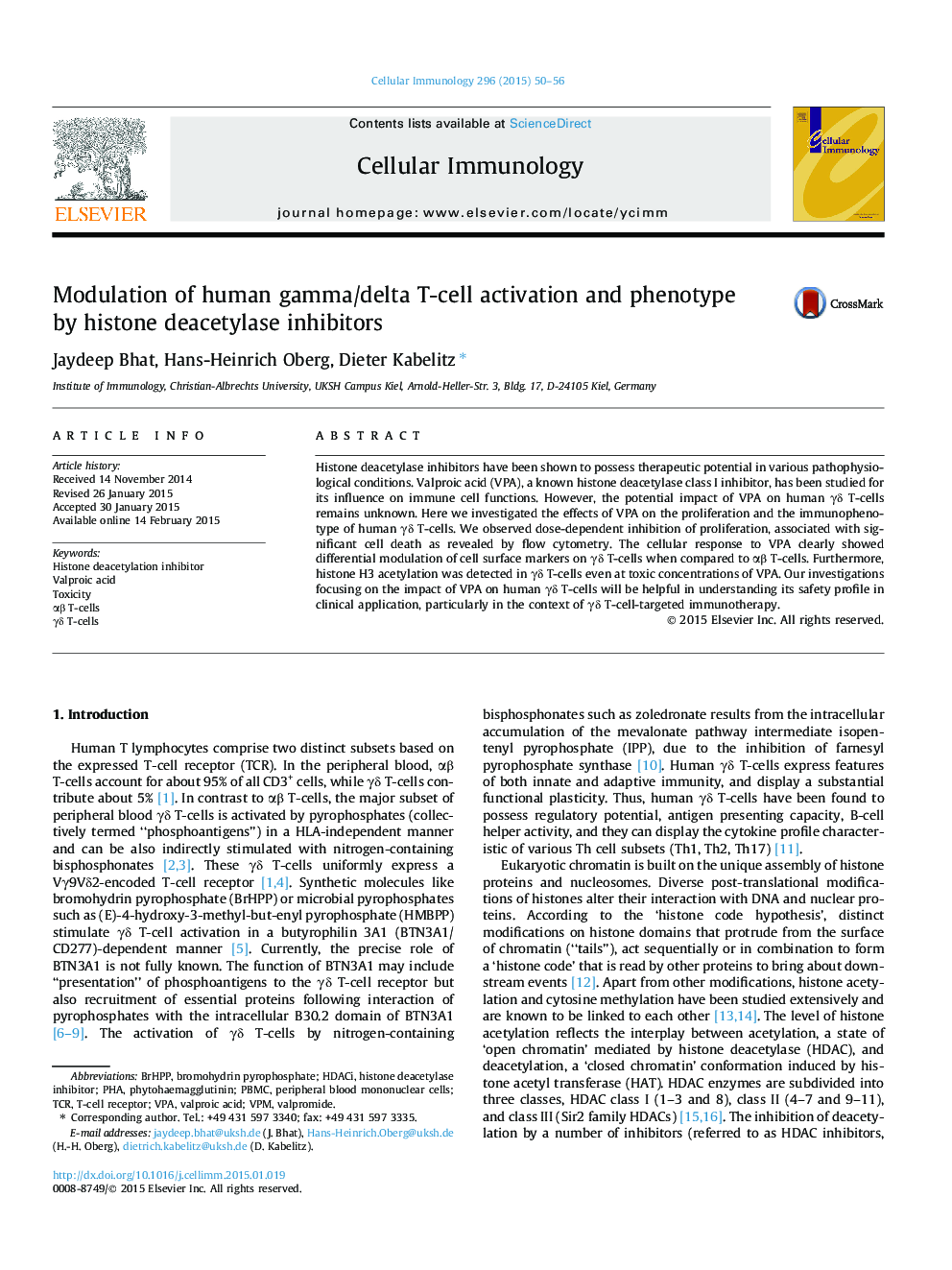| Article ID | Journal | Published Year | Pages | File Type |
|---|---|---|---|---|
| 2166931 | Cellular Immunology | 2015 | 7 Pages |
•Valproic acid (VPA) is a potent histone deacetylase inhibitor, used in clinic.•Dose-dependent modulation of human γδ T-cell activation and surface markers.•Induction of histone H3 acetylation by VPA in human γδ T lymphocytes.•VPA is potential modulator of γδ T-cell-based immunotherapy.
Histone deacetylase inhibitors have been shown to possess therapeutic potential in various pathophysiological conditions. Valproic acid (VPA), a known histone deacetylase class I inhibitor, has been studied for its influence on immune cell functions. However, the potential impact of VPA on human γδ T-cells remains unknown. Here we investigated the effects of VPA on the proliferation and the immunophenotype of human γδ T-cells. We observed dose-dependent inhibition of proliferation, associated with significant cell death as revealed by flow cytometry. The cellular response to VPA clearly showed differential modulation of cell surface markers on γδ T-cells when compared to αβ T-cells. Furthermore, histone H3 acetylation was detected in γδ T-cells even at toxic concentrations of VPA. Our investigations focusing on the impact of VPA on human γδ T-cells will be helpful in understanding its safety profile in clinical application, particularly in the context of γδ T-cell-targeted immunotherapy.
